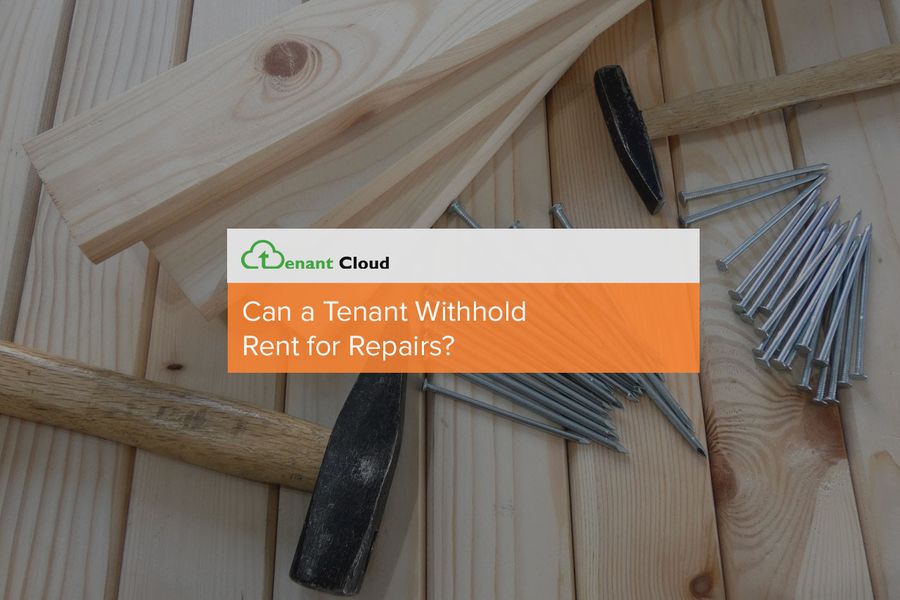It is rare, but every once in a while I get a tenant who stops paying rent and tells me it’s because I won’t fix something. They often state they don’t have to “legally” pay because the rental is in bad condition. Once a tenant even claimed they should get six months free rent because the roof leaked. It’s even rarer that the courts will see this as anything but “nonpayment of rent.” It is, however, your responsibility to make sure all is in order. These days it’s quite easy to do that using technology.

Communication Is Key
As a landlord, it’s first and foremost your responsibility to ensure your rental meets the “implied warranty of habitability.” At move-in you should have your tenant sign the inspection form to ensure they have agreed to the rental’s condition. It may be obvious to you, but having the tenant sign off on the rental’s condition at move-in is important. Damages created by the tenant are most certainly not something the landlord is required to fix for habitability.
Related: How To Avoid Accidental Property Damage: Top 5 Tips Landlords Need To Know
I use TenantCloud to store all my tenant information, including inspection, rent payment history, lease agreement, and messaging. When it comes to tenants withholding rent, communication is key. Automatic maintenance requests that are stored make up a history of the repair status and messaging about the issue that can be very important. They’ll help you coordinate any actual problems with the rental.
Managing maintenance on a regular basis will help keep your rental up to date and in great condition. This includes occasional inspections, changing smoke detector batteries every six months, and doing the occasional drive-by to see if anything stands out as needing to be fixed. Maybe you do maintenance on the second Saturday of every month and therefore schedule any issue to be addressed then. TenantCloud’s ability to include a picture and video is very helpful in that I can see the issue, which saves me a visit, but it also documents when the issue was first sent and communicates what will be repaired.
There is a big difference between a refrigerator breaking and a towel rack falling off. A refrigerator should be addressed right away, due to the groceries that could be ruined, while a towel rack can sit for months. Communicating with your tenant so they know the status and plan for repairs will avoid most issues becoming a bigger problem.
Withholding Rent Isn’t a Thing
Tenants will often make claims about different issues the landlord didn’t fix, but in all cases I have ever seen there was never a justified “rent withholding,” so the courts considered it “nonpayment of rent.” Many new landlords will be concerned about such threats from tenants, but the real concern should be how to get your tenant out of your rental, as they probably don’t have the money to pay rent. If it’s more than three weeks past the rent due date, then you should consider options for evicting the tenant (see eviction article).
Coincidentally, when a tenant is in court for nonpayment of rent, the top excuse made to judges is “the landlord didn’t do repairs.” So when tenants are evicted, they claim repairs haven’t been done, which is the same as refusing to pay because repairs haven’t been done. In court proceedings you should be prepared to show a lack of rent paid. Your communication in regards to the maintenance requests, however, will be most needed in the event an issue arises from the city humanitarian office.
When a Lack of Repairs Can Be an Issue
Health and Human Services (humanitarian office), an organization which will have a different name in every city, oversees many parts of the rental market. H.U.D. defaults to this local office to enforce discrimination claims and more. The office also will investigate when a rental has habitability issues. Tenants can make claims, so having records such as those kept by TenantCloud to show evidence of messages and repairs is very helpful. Most of these cases end in a formal request to the landlord to do some minor repairs and the city approving.
Tenants who threaten to withhold rent due to a lack of repairs should be notified of nonpayment of rent. The more time passes without you getting paid, the more chance you as a landlord will be stuck with a tenant for months.
Dealing With Tenant Common Maintenance Requests: Best Ways To Resolve Issues
Rental Property Maintenance Checklist: The Landlord's Guide On Making Repairs
How Landlords Can Minimize Rental Property Expenses: Don't Flush Money Down the Drain







